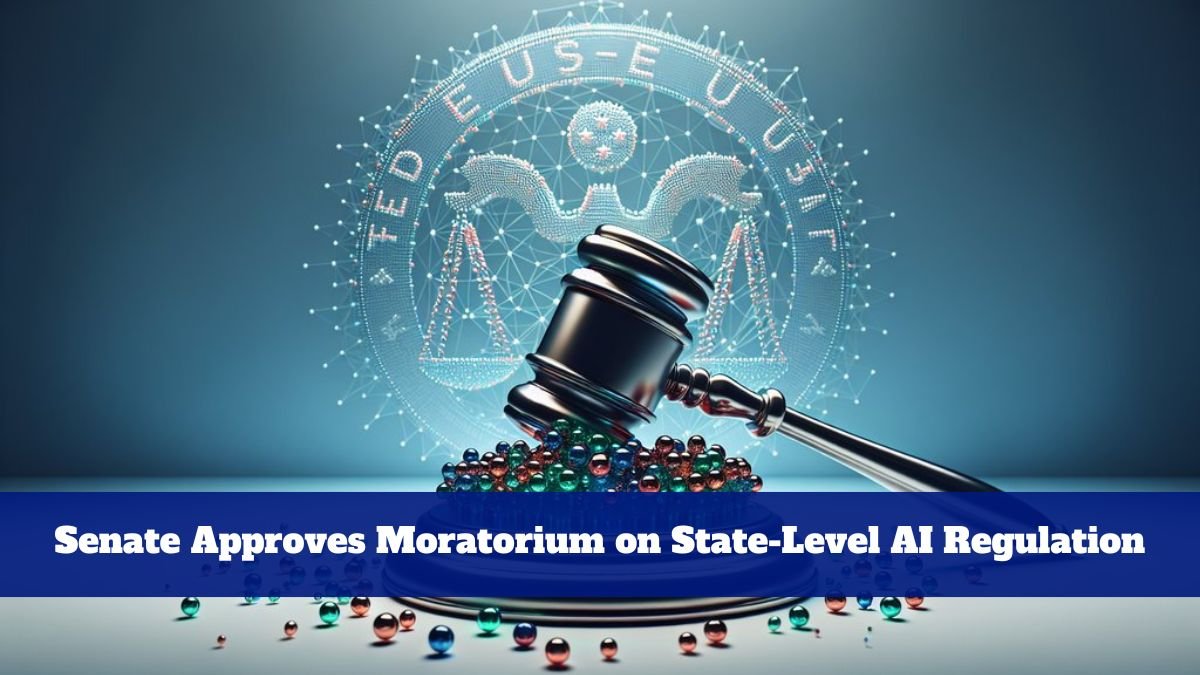1. Major Political Decision on AI in the US
A big political move is underway in the US regarding Artificial Intelligence (AI). Recently, an important proposal cleared a major hurdle in the US Senate. This proposal, pushed by the Republican Party, aims to prevent individual states from making their own AI regulations at the state level.
2. What is the Proposal About?
The proposal says that if any US state implements its own AI laws, the federal government will withhold broadband funding from that state. This rule would apply for the next 10 years, discouraging states from passing separate AI regulations and keeping control at the federal level.
3. Why Was This Proposal Introduced?
Republican leaders argue that if all 50 states create separate AI rules, it would lead to confusion and negatively affect key sectors like defense, health, education, and cybersecurity. They believe AI policies should be consistent nationwide to avoid risks to national security.
4. The Role of Senate Commerce Chair Ted Cruz
Senate Commerce Chair Ted Cruz rewrote the proposal to ensure it complied with budget rules. The Senate Parliamentarian ruled that this new version is not subject to the Byrd rule, allowing it to be passed by a simple majority vote in the Senate without a filibuster.

5. Is There Full Republican Support?
Not all Republicans are fully on board. For example, Republican Senator Marsha Blackburn of Tennessee voiced concerns, saying, “We do not need a moratorium that would prohibit our states from stepping up and protecting citizens in their state,” showing some internal opposition.
6. What Happened in the House of Representatives?
A version of the bill including this moratorium has already passed the House. However, some far-right members, like Representative Marjorie Taylor Greene, strongly oppose it, calling it a violation of states’ rights. They want this provision removed in the Senate.
7. Trump’s Support for the Moratorium
House Speaker Mike Johnson defended the moratorium and said it has former President Donald Trump’s support. He emphasized the need for a national AI policy, stating, “We have to be careful not to have 50 different states regulating AI because it has national security implications.”
8. Concerns from Advocacy Groups
Advocacy group Americans for Responsible Innovation warned that the proposal’s broad language could block important state-level public interest laws regulating AI and other technologies. They fear this could create a regulatory vacuum without strong federal alternatives to protect citizens.
9. How Could This Affect Citizens?
If states are barred from making their own AI laws, it could delay or prevent important consumer protections. For example, laws restricting AI facial recognition or safeguarding personal privacy could be blocked, leaving citizens vulnerable to misuse of technology.
10. What’s Next for the Bill?
Now that the proposal has passed a key Senate hurdle, the next step is a full Senate vote. Some Republicans still oppose the provision. It remains to be seen whether it stays in the final bill. Citizens interested in AI policy should stay tuned for updates.






